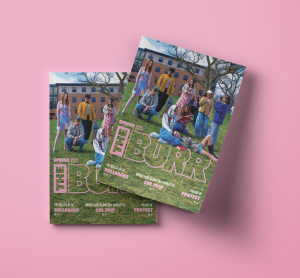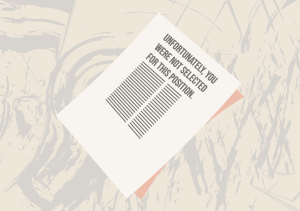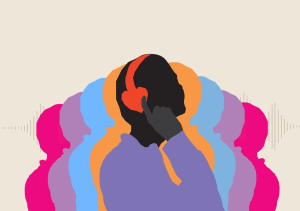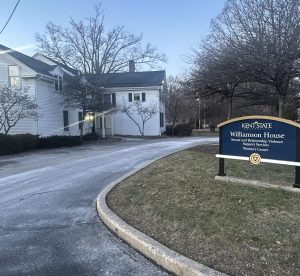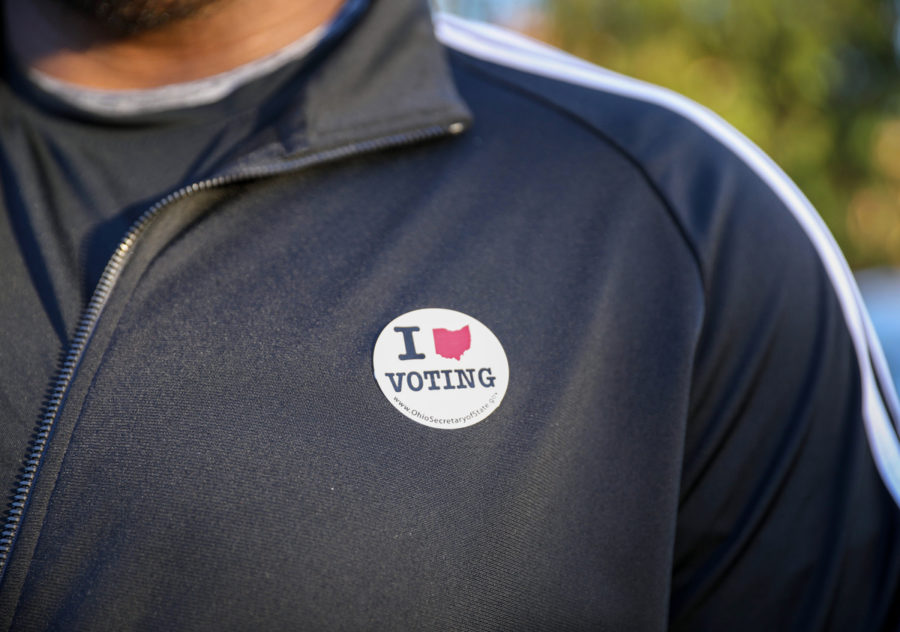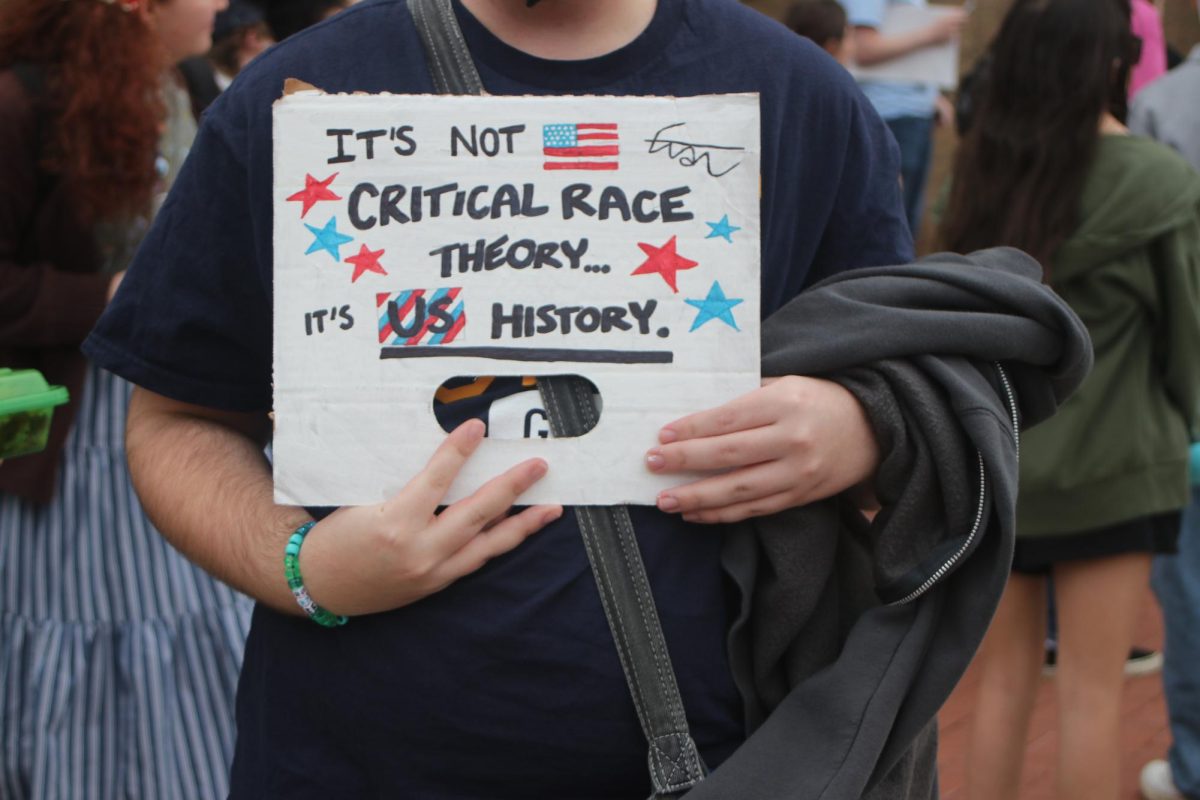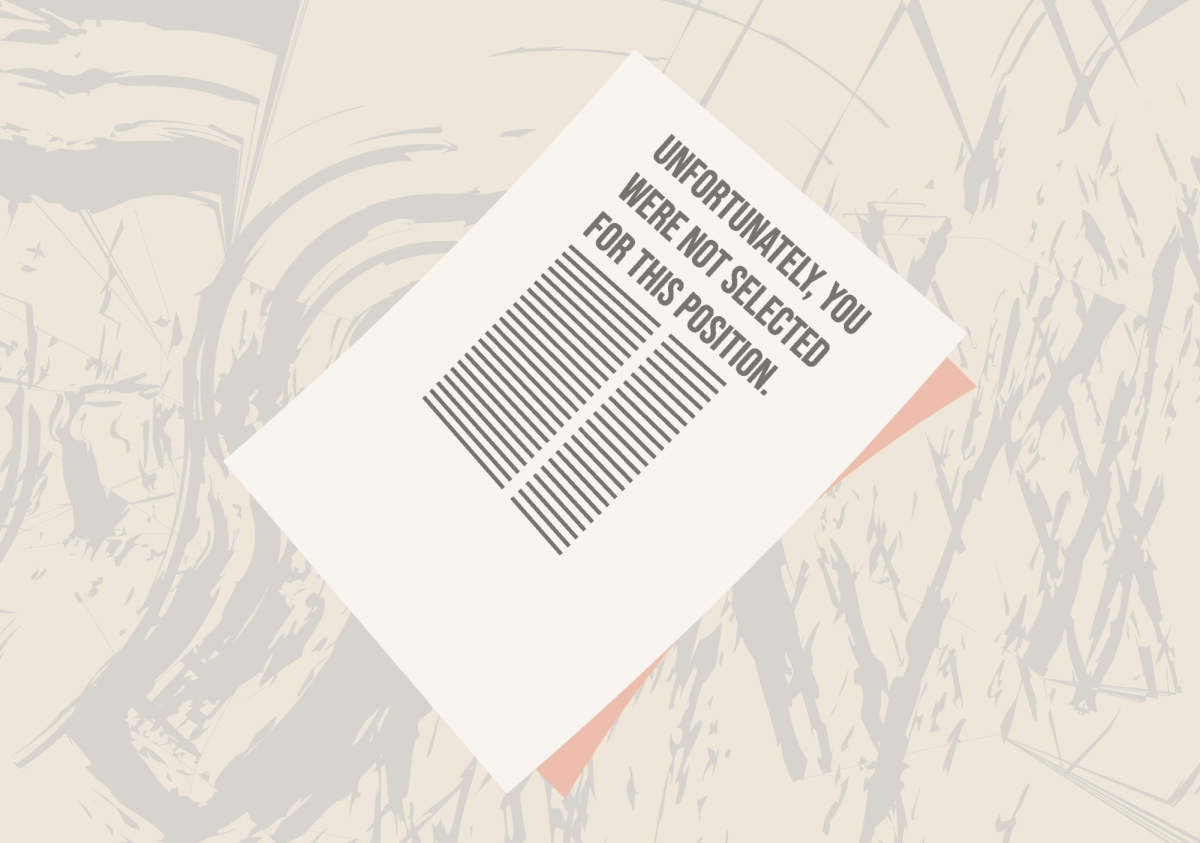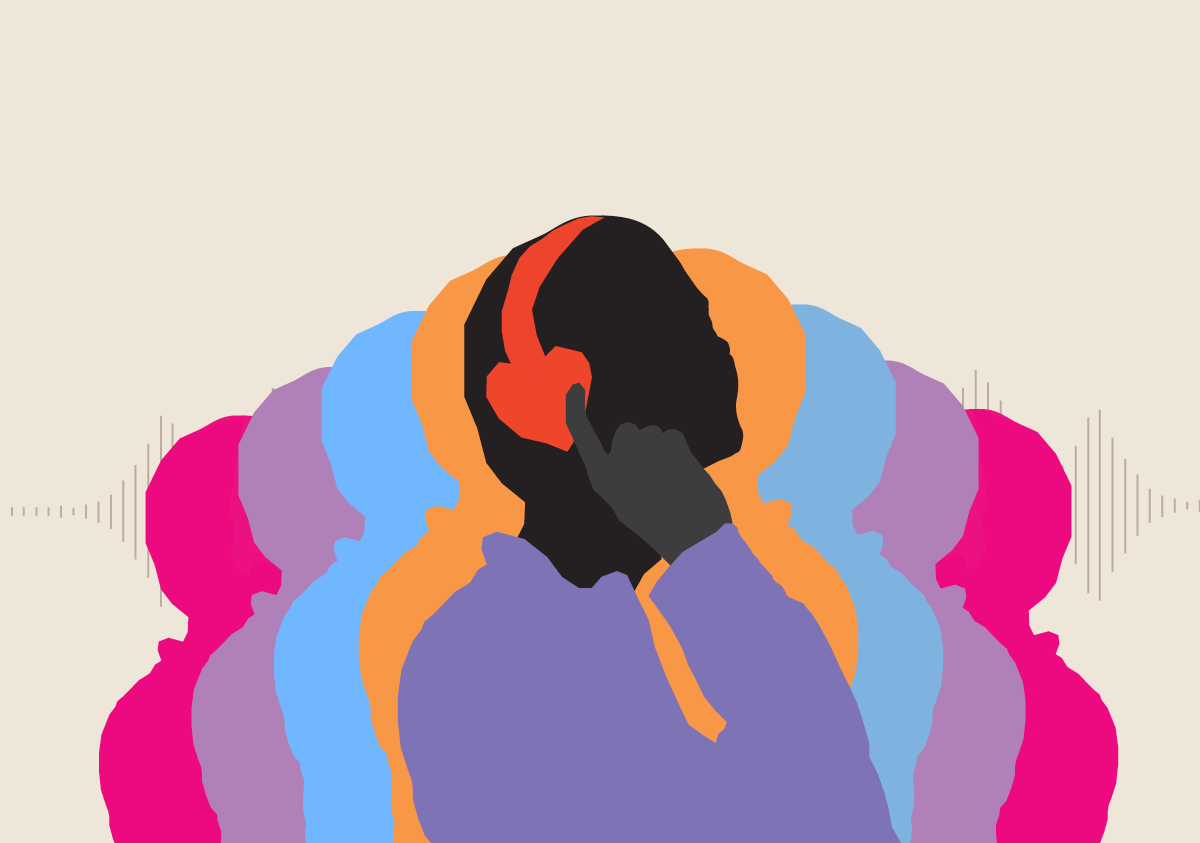Illustration by Jocelyn Burton
Photos by Anastasia Lawrence
The 2020 presidential election has been the most anticipated spectacle of this tumultuous year. Even the build-up, like most events this year, had an air of increasingly intense energy. The COVID-19 pandemic has been the center of the election narrative since the beginning of the year, both with how to count and cast votes safely. Months ago, I was anticipating casting my ballot in my first major election. However, as the months passed, I decided to go even further and apply to become a poll worker. It felt daunting, especially since I have never been involved in an election on either side of the coin and the possibility of health risks that could come along with me working with so many people. Even after my training session, I still felt quite nervous about what I was doing. After speaking with one person and actually working on the election, I am moved by the process and the immense energy that every voter brought in for something so simple.

Before I jumped in head first, I needed some background about working the election. I spoke with Barbara Hipsman Springer, former associate professor of journalism at Kent State who taught media ethics and public affairs and is a volunteer with the Kent branch of the League of Women’s Voters. This election she worked closely with Kent State Votes, an initiative spearheaded by the Undergraduate Student Government. She has a long experience with the election process, as she was involved in various aspects while she was teaching.
“For many years, I would try to hang out near the polling places that students traditionally go to and sort of help them cut through the red tape.” Springer would help by making sure students had proper identification and transportation to their election sites.
Springer’s mission, both back then and now, was always to make sure everybody who was eligible to vote was also registered and able to vote. She also further elaborated that the League also encourages education about the current election’s issues and candidates:
“We just want people to go vote. We want you to be educated about what on the ballot and who’s on the ballot(…) we want to encourage you to get registered.”
Absentee ballots proved difficult for students on campus since they are in a state of flux and could leave at any time because of COVID-19. Springer has seen this firsthand and has had confused students contact her, unsure of how to get their absentee ballots done correctly. “A lot of students are at home, they’re registered in Kent, but they’re sitting at home and that’s a problem.”
Despite the confusion of absentee ballots, Springer has been trying to keep people relaxed and level headed about voting.
“A lot of what the League does is to assure you it’s okay. Take a deep breath, let it up. You’re not going to, you know, okay. Just relax. It’ll be fine”.
She then, to quell my own nervousness about working the polls, gave me some advice from her previous experiences working.
“People are worried they need to be comfortable, so I always make sure I have a greeter at the front. If nobody’s doing that here, you can either do that or we usually use our youngest persons on the iPad just to get started and to relax until everybody’s nerves get down. (…) I’ll give you a personal tip: get up and walk around. If you don’t have somebody sitting right in front of you needing help, you get up to walk around, or you will be getting not only stir crazy, but your body takes such a beating sitting there all day.”

This advice would prove immensely helpful as I walked into the belly of the beast a few days after I spoke with Springer. The night before judgment day, I attended a pre-election meeting. I took a freezing cold multi-bus ride to the polling center, a local elementary school. My fingers were numb as I walked into the gymnasium, the room to house the Election Day events. Unsurprisingly, I was the youngest of the bunch. There were eight poll workers including myself, most of whom arrived early with crinkly bags loaded with sealed election supplies.
Our leader, Cynthia* (names will be changed) arrived shortly after myself, bringing supplies and more equipment from the Akron Board of Elections. After going through short introductions, Cynthia began to appoint pairs, one Democrat and Republican, to go through space and equipment. One pair went through the voting path, double-checking its accessibility, another set up a personal protective equipment table at our entrance and one more marked off six-foot distance between people. My pair tested our voter sign-in equipment, iPads with printers.
Once that was completed, we all re-grouped and discussed more logistics for Tuesday. A packet of blue papers gave us access to the eligible voters in that district, it said that over half of the group already voted. We all presumed we should not be super busy, which would later prove to be the truth on Election Day.
Tuesday morning swept in and knocked me awake — I was ready for a day packed with papers and stickers. The workers needed to be at their polling stations by 5:30 a.m., thus, I was up and making breakfast by 4 a.m. I filled myself to the brim with heavy proteins and coffee since I knew it would be a lengthy morning. After I scheduled my early bird transportation, I was off under the same black sky I left the school behind the evening before. Most of my fellow coworkers had already arrived, lugging their jostled equipment back in; the tests from the past night prepared them for the baggy-eyed setup.
Instead of organizing the check-in tech, a woman named Angela* and I started up the M-1800 machines. Like many counties in Ohio, Summit County’s elections are mostly assisted by modern technology, but the majority of the election is run by mature slate machines, rickety privacy booths and paper receipts. The M-1800 processed and counted the ballots from voters; they required a series of keys, printing and removing large pieces of metal coverings to get set-up and operated. They chugged awake and began printing zero reports, which are blank reports with the issues and choices on the ballots to show that the printer is working.
Once the machines started, all the workers swore an oath for the board, clocked in to our stations and prepared for the voters. There was an Akron Public School employee with us that day who was there to monitor the voters as they came in. While we all signed in, five minutes before the polls opened at 6:30 a.m., voters came in and told us there already was a line of about 150 people outside the doors of the school. We all were and were not surprised. The problems of long lines at the polls were an issue even before election day, with numerous instances of people waiting multiple hours to vote early. I was surprised by the immense line since the sun wasn’t even up. It did bring me some optimism that so many people were willing to brave those conditions just to vote. Once the clock struck 6:30 a.m., the voters were spaced out and allowed into the fast-paced heart of the building to cast their ballots.
My first position for the day was ballot distribution. The three people in front of me would check in one voter at a time, mostly with driver licenses, process them and hand me a slip with whatever ballot that voter was supposed to have. I would hand them the specific ballot with a privacy slip and the check-out people would direct them to any open booths. The differences between the ballots were mostly local issues that would apply to whatever area of the district the voter resided in which would be attached to a different color. The colorful stubs would be detached and collected into a bin at the end of the location.
It was both a simple and safe job with very minimal physical exposure to the voters. It also allowed me to watch the intense yet safe line a little easier than I would have without interfering with my duties. As the sun began to appear in the single window in the gym, the line only grew longer. The public schools official told us at some point that it was even reaching the street outside, several hundred feet from the school. I was not able to look at the line myself, but when I went for a restroom break, the line followed along the walls and out the door, leading onto the sidewalk in the distance.

We were busy for the first four hours, buzzing people in and out, passing out more ballots and growing colder inside the windowless room. My fingers were frozen and dried-up with every ballot and sanitization after every couple of ballots; I knew it was something good I was doing, so this was barely an issue. Most of the people toward the beginning of our rush were older and middle aged, but the audience diversified with ages as more came in and out. By 8 a.m., voters came in and told us it took them an hour and a half to enter the building. The people who were there when we opened were just now starting to be able to vote. This quickly became the normal waiting time during the rush.
When a hiccup occured with a voter, whether it was with a lack of identification, being in the wrong polling place or when the system picked up that the voter requested an absentee ballot, they were always double-checked and handled with a profound level of care. Cynthia and Angela, who were troubleshooting for most of the day, always made sure to help in every way possible, so they could help everybody vote. Cynthia especially was gentle in her determination to get everybody to vote.
One instance that stood out to me was when a young woman came in with an incorrect form of ID with her mother; Cynthia was trying to see if the young woman had any other forms of ID, like bank statements or mail, but she didn’t. Cynthia explained her options to her in a compassionate manner, even going so far as to give the young woman her number, so she could call when she came back, so she would not have to go through the long line once more. It was amazing. Cynthia did not need to go to that extent, but I always like to applaud whenever someone goes above and beyond for something as vital as voting.
Around 11 a.m., the waiting time decreased to about twenty minutes with the lessening amount of people in line. When 11:30 a.m. hit, the rush was pretty much over, and it would create the pattern of people for the rest of the day; ebbing and flowing between short bursts of people before being dead for forty minutes. Someone ordered Papa John’s, free courtesy of the manager, which soon arrived for us leading to countless jokes from voters, asking if they would get a slice for voting. I was still in my original position, but after my brief lunch break to eat and look over my notes, I was placed at the check-in table and would remain there for the rest of the day.
There was a brief mini post-lunch rush, with about twenty people coming in and out. Contrasting with the rush and commotion of the morning, the afternoon would blend into the evening with very little disturbance. With the few people that did come in, they gave us many “thank yous” for our work, which was always super nice and appreciative.
Toward the end of the evening, with the sundown and a few more stragglers coming in, all the poll workers began to sit and chat about their everyday lives. Our day jobs, previous hardships, layoffs and Akron’s previous glories were all brought up, making the deadline for voting draw a little closer. Leftover food was passed out to whoever could provide a loving stomach to house it.
A couple of stray voters arrived fifteen minutes before we closed, casting the final ballots of the day. We already began cleaning up while they were voting, organizing extra papers and getting them to put away. Once the voters left though, we began to empty the M-1800’s stuffed with ballots. We also ended the program and closed the poll; this resulted in two of the longest receipts I have ever seen. The used ballots went into two large duffle bags, sealed with zip ties and closely monitored. The stubs from the ballots piled up and shoved into an envelope, which was also placed into a monitored tied bag. We secured the check-in devices, posters from the wall and every little scrap of paper there was left from the day. Once those were checked, then triple checked for absolute security, we all logged out, walked out to our respective cars and left the polling site. Two people took the equipment, ballots and remaining supplies back to the BOE. One person stuck around with me, making sure I got into my Lyft.
Once I entered the magenta lighting of the car, the day barely seemed to have actually happened. The morning was more what I was expecting; long lines, a constant flow of people ready to do their civic duty. It seemed like it was going to be grand, full of the same intense swell of energy propelling us into the election cycle. Once that was over, I realized how small and quiet of an operation we ran. Not diminishing from the importance of it, but it became more localized. The workers who voted in that district recognized people, asking about their kids and then greeting the kids once they stopped in later. These papers I was passing out would affect their sidewalk holes and the future presidency. It seemed almost too big when I came in and shrunk to the more attainable status once I left the bubble and went home.
Even with this change in standard, it was still so thrilling to see so many people line up for something most would find a hassling task to check off a paper list. The other remarkable thing about it was the enthusiasm. I remember accompanying my mother or grandmother to the polls as a kid and the most exciting part for anybody was the hand-baked cookies that workers sold. Entering those booths and doing civic duties seemed as tedious as emptying the dishwasher. However, when I was working, an air of eager involvement burst out from the voters and hung throughout the gym. It was a remarkable and distinct change. Seeing people this happy about basically taking a quiz is a sign of real change. While the results will be a lengthy back and forth process, taxing many of us in the process, the people have a white-knuckle grip on their power and are not letting up anytime soon. Even better, they have a smile on their face.

